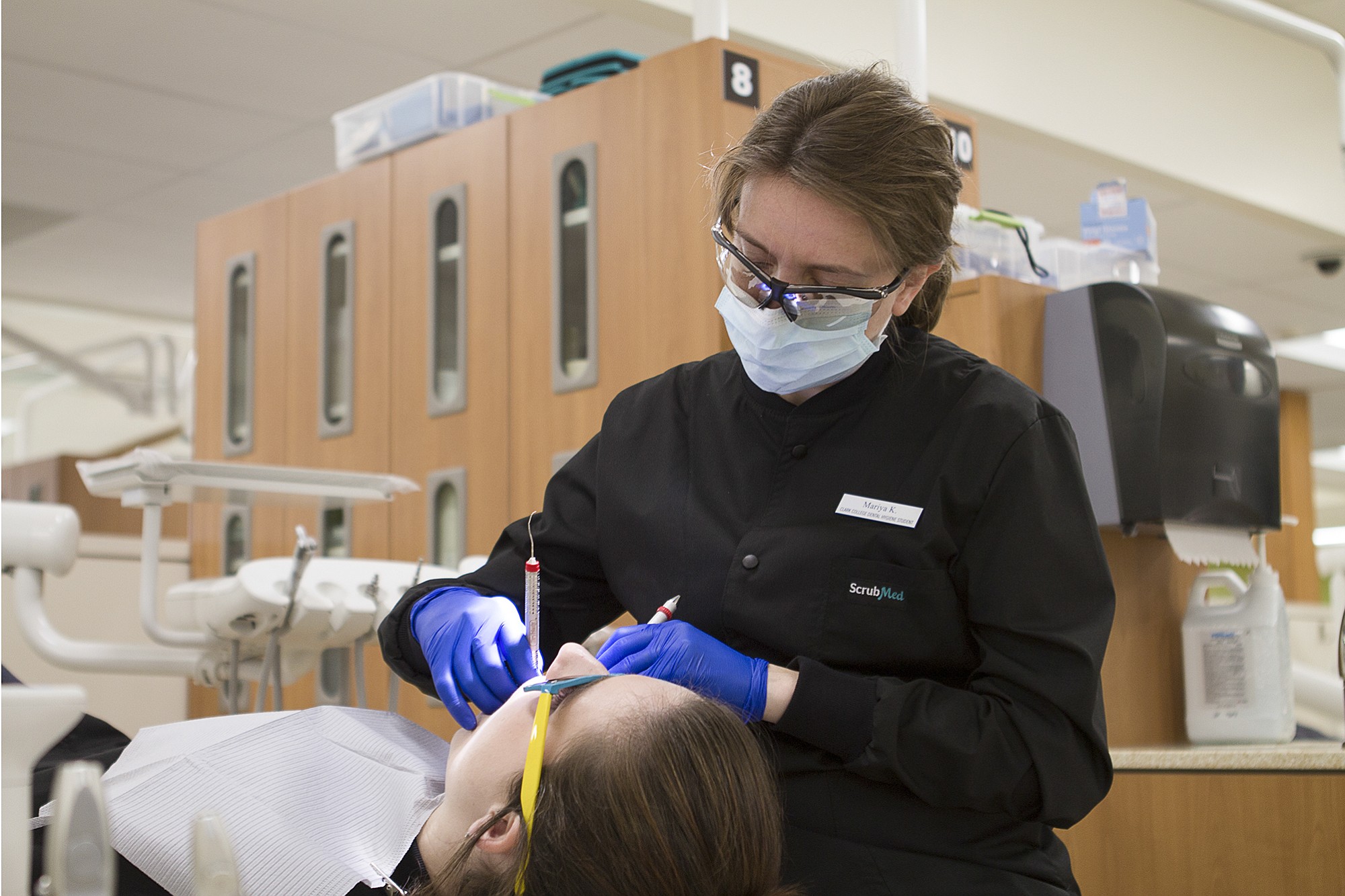Editor’s note: This story was written by a staff member of The Independent, Clark College’s campus newspaper, as part of a collaboration with The Columbian called Voices From Clark College. It will be published online today by The Independent at www.clarkcollegeindependent.com.
Clark College has something to smile about.
The college will offer a bachelor of applied science in dental hygiene degree starting in fall 2015.
The Northwest Commission on Colleges and Universities approved a proposal to add the college’s first baccalaureate degree, Clark announced last month.
The degree in dental hygiene will benefit both students and the community, according to Vice President of Instruction Tim Cook. This program opens up additional job opportunities to students, while adding very few additional courses to their degree plan.
“Previously, students in the associate of applied science program in dental hygiene were here for four or more years because of the requirements of the program,” Cook said. “Being able to offer this degree allows Clark students to earn a bachelor’s degree in the same time.”
Stacey Carney, a Clark dental hygiene student, said, “It’s nice they’re acknowledging it as a bachelor’s degree, it makes it easier to go on and get a master’s if you’re interested in teaching.”
The new program builds on the current dental hygiene program, with an increased emphasis on research and educational methodologies. Because all dental hygiene curriculum is standardized by the Commission on Dental Accreditation, minimal changes to the associate program are required. The new program will have 25 students next fall, said Brenda Walstead, director of Clark’s dental hygiene programs. It expects 25 students in both the junior- and senior-level classes in the fall of 2016, Walstead said.
Students with an associate degree are typically employed in private practice offices or clinics. The bachelor’s degree provides opportunities for dental hygienists to work in dental sales, public health and research.
After earning her degree, Carney plans to work in private practice “for maybe five or 10 years, then possibly go into research and development.”
Judy Hartman, another dental hygiene student, said she hopes to work somewhere in the state where there’s a lack of access to care.
Cook said, “Like many other healthcare professions, dental hygiene has experienced a gradual yet steady movement toward the bachelor’s degree as the desirable degree for entry-level professionals.”
The addition of the bachelor’s program is part of a larger push to expand access to baccalaureate education in Washington that began with the passage of HB 1794 by the state Legislature in 2005.
The intention of HB 1794 was to increase the number of baccalaureate degrees earned in Washington to 42,400 by 2019. As of the fall of 2013, there are 11 colleges in the State Board of Community and Technical College system offering 23 different applied baccalaureate degrees.
The approval of the bachelor’s program at Clark caps off a year of highlights for the program, including the opening of the the Firstenburg Family Dental Hygiene Education and Care Center. The $3.3 million renovation was funded by donations from a variety of entities including the Firstenburg Foundation, Roy and Virginia Andersen Endowment, M.J. Murdock Charitable Trust, and John A. and Helen M. Cartales Foundation, among others.
The renovated space allows the program to serve more students and more patients, with a focus on children and underserved populations.
“Clark was my first choice,” said Carney. “They call it the ‘Harvard of the West’ for dental hygiene.”
Liepa Braciulyte and Emma Fletcher of The Independent staff contributed to this story



